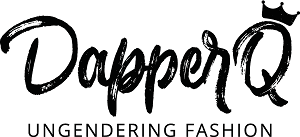Black History Month offers opportunities for us to open a much needed dialogue about the historical contributions of black Americans, a minority group that is often ignored within the queer community. However, adding the topic of hip-hop to the discussion tends to complicate conversations, since people hold opposing views about whether it is a positive or negative product of black, urban culture. While mainstream media tends to both demonize, as well as profit from, the unfavorable aspects of hip hop, others, including Cornel West, see it as an empowering art form and support its progressive contributions, while working to remove some of its negative forces.
Not only am I a fan of hip hop music, I also appreciate hip hop culture and its contributions to fashion. Throughout its evolution, hip hop has impacted the way people dress worldwide. And, while hip hop has undoubtedly perpetuated conventional – and even misogynist – gender stereotypes, it has simultaneously provided a space for women to adopt traditionally masculine attitudes and styles of dress.

The women of hip hop brought a new type of dapper to the fashion scene – “street realness” and “homeboy chic.”

Some elements of these styles may seem unrefined, but a complete look is based in meticulous details: clean white and designer men’s tees, fresh new kicks and baggy pants, ski caps, fedoras, do-rags, baseball caps, track suits, and heavy gold chains. These are just a few examples of masculine fashion ingredients in the hip hop cookbook that can be selectively mixed to concoct a perfect street ensemble. (Don’t understand the baggie pants? Allow Jay-Z to explain it better: “can’t wear skinny jeans ‘cause my knots don’t fit.”) The amount of effort that goes into putting these looks together may not be readily apparent, but these fashions, as Biggie Smalls put it, “stay Coogi down to the socks.”

Female hip hop artists have not only used their iconic images to encourage exploring masculine territories, they have also used their celebrity status as a platform to directly affect social change through fashion. In November of 2004, Missy Elliot launched her own line of Adidas footwear called Respect M.E.. The collection’s marketing message was based on the concepts of positivity, empowerment and respect. A percentage of the line’s sales went to support Break the Cycle, a non-profit that works with youth to end domestic violence.
There have been many occasions when I have been ambushed by people who are terribly upset that I support hip hop music and culture. I often bring up hip hop’s positive forces, such as those mentioned above, when defending this art form. Starting this month, I ask that you consider what hip hop has done for us, especially when it comes to challenging gender roles in areas such as fashion. We often consider the achievements of movements such as Riot Grrrl, even though there are numerous examples of violence, misogyny and homophobia in rock and punk music. Therefore, when it comes to hip hop, we should not completely discredit it, but rather join together to use it as a force for social change.





hmm… love it! do you think the hip hop style would work for a Euro-boy like myself? lol
I love this! It’s great that you’re honoring the Black History Month through the context of hip hop and fashion. This is a great look and there should definitely be more emphasis on diverse fashion styles that are out there.
“stay Gucci down to the socks.” – LOVE IT!
p.s. Robert, I think that you and I can pull off the Eastern European hip hop style without a doubt! lol
You wrote such a wonderful article, Juanita! I think you illustrated some great points about hip hop fashion styles while giving credit to Black History. You’re an excellent writer! Keep up the good work.
Karen
I just stumbled across this website and I’m a big fan! As a newly engaged lesbian who likes to wear male clothes, I’ve found some really useful tips. This article wonderfully brings light to the hip-hop culture’s great, albeit, indirect contributions to the lesbian community. I have to say though, Biggie’s line was “stay Coogi down to the socks”. Different brand.